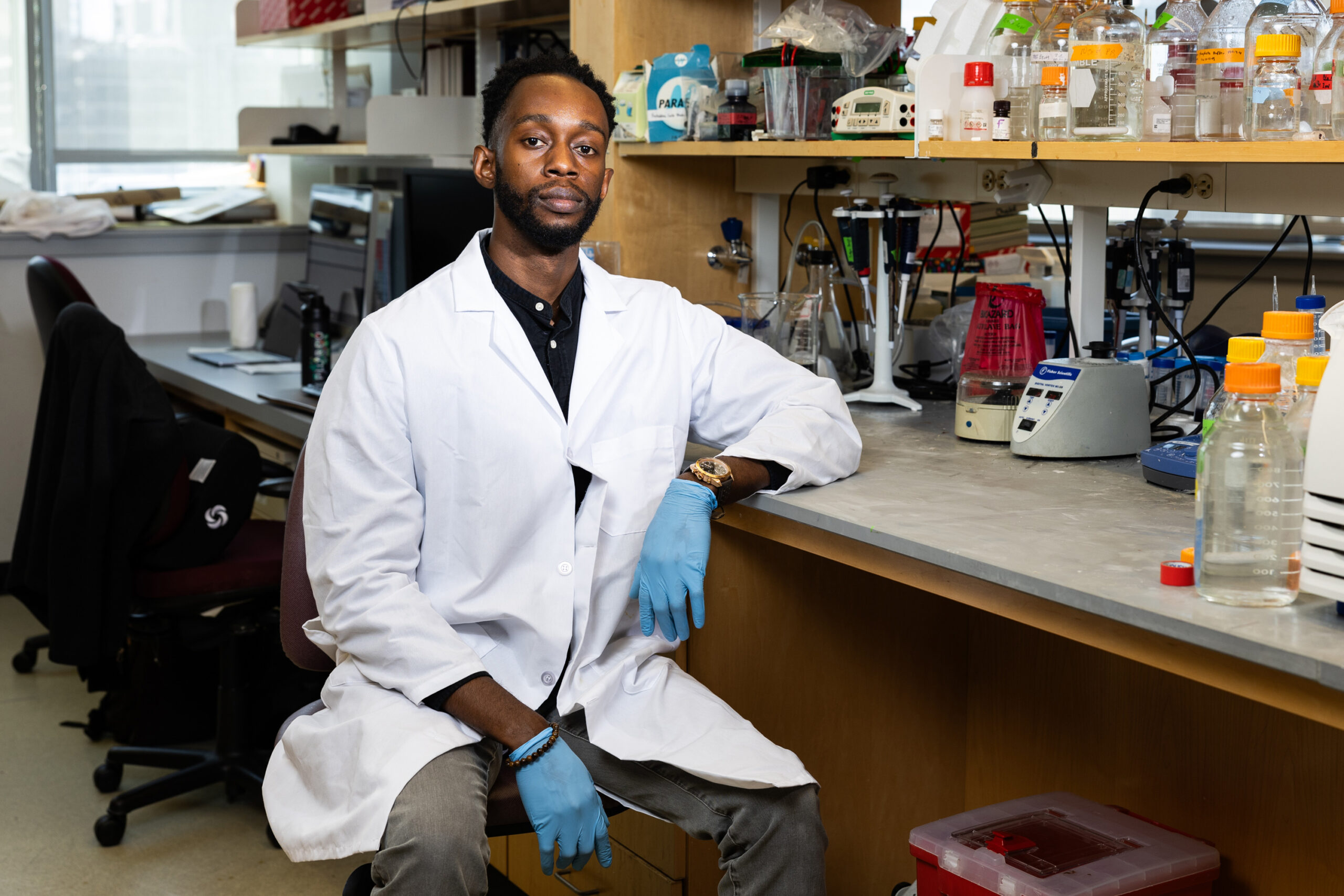During the early stages of his bioengineering studies, Sayo Eweje initially envisioned a career in medicine, inspired by his father’s work as a gastroenterologist. The notion of applying medical knowledge to enhance patients’ lives ignited his passion. However, through his undergraduate research, Eweje discovered the profound impact of scientific breakthroughs on a larger scale. This realization shifted his focus towards exploring innovative solutions that could transform healthcare.
“This concept truly captivated me,” Eweje recalls. “I recognized that to make significant advancements, one must explore the frontiers of science.” By his junior year, he had set his sights on becoming a physician-scientist, balancing patient care with groundbreaking research. After completing his undergraduate studies, he joined the prestigious Harvard-MIT MD/PhD program, affiliated with both Harvard Medical School and MIT’s Institute for Medical Engineering and Sciences.
Now in his sixth year of the program, Eweje is deeply immersed in his PhD research focused on medical engineering, working in Elliot Chaikof’s lab at Beth Israel Deaconess Medical Center. His innovative research centers on developing protein-based nanoparticle systems aimed at delivering nucleic acid and protein therapies directly to cells within the body.
Eweje’s fascination with this research direction sparked shortly after he began his program. Reports detailing a groundbreaking gene editing treatment for inherited blood disorders showcased the potential for curative therapies. However, the current method requires extracting blood-forming stem cells, editing them, and then reintroducing them back into the body after intense chemotherapy—a process fraught with toxicity and scalability challenges.
“If we could deliver gene-editing therapies inside the body without the need for cell extraction or chemotherapy, it could revolutionize treatment accessibility and efficacy,” Eweje explains. “This realization drew me towards addressing the complexities of drug delivery with a focus on engineering nanoparticles and delivery vehicles. Many challenges in disease treatment ultimately hinge on effective delivery methods.”
Tackling Diseases at Their Roots
Numerous diseases stem from mutations in hematopoietic (blood-forming) stem cells, motivating Eweje to join Chaikof’s lab, which seeks innovative methods to deliver RNA and protein therapies to these cells within patients. Since beginning his work, the project has evolved into a broader initiative exploring various applications, from gene editing in the lungs to novel immunotherapies and cancer treatments.
This January, Eweje shared insights through an article published in Biomaterials, updating the research status on protein-based nanoparticles for nucleic acid delivery. While viral vectors have historically facilitated gene therapy, they pose risks of triggering immune responses, making them less desirable.
“Using protein materials, especially those derived from humans, significantly reduces the likelihood of an immune response—a crucial advantage,” he states. “Our lab is also committed to refining the programmability and precise structure of recombinant proteins.”
Although more research is essential to fully understand the capabilities of non-viral, protein-based nanoparticles compared to their viral or lipid counterparts, Eweje values the learning experiences he has gained throughout this endeavor.
“I’m grateful for the chance to delve into existing knowledge, confront challenges, and carry those lessons forward,” he remarks.
Creating Opportunities for Others
Beyond his laboratory and clinical commitments, Eweje is dedicated to education and outreach initiatives, impacting communities from Cambridge to Nigeria, his family’s homeland. He co-founded the Program of Ragon and IMES in Science and Medicine (PRISM), which facilitates weekly programs for high school students in the Boston area, where they engage directly with scientists and healthcare professionals across various STEM fields.
“I view children as stem cells,” he shares. “They possess immense potential, but they require a conducive environment and the right exposure to explore their capabilities.”
Additionally, Eweje serves as a co-managing director of the Critical Healthcare Information Integration Network (CHIIN), a nonprofit providing crucial medical information to community health workers in rural and underserved areas of Africa. This initiative utilizes a chatbot to answer health queries via SMS, ensuring support reaches those in the most remote locations.
“The goal was to empower users with a reliable resource they could refer to when needed,” he explains.
As Eweje’s time in the HST program approaches its conclusion, he plans to defend his PhD next year and return to full-time clinical work at Harvard Medical School. He envisions a career that bridges clinical practice and biotechnology innovation.
Eweje is also passionate about inspiring youth to venture into STEM fields. “Every individual should have the opportunity to realize their fullest potential,” he asserts. “I find immense fulfillment in positively impacting someone’s life simply by providing them the chance to learn about something that could alter their path.” He believes it is both a privilege and a responsibility to foster such growth.
Photo credit & article inspired by: Massachusetts Institute of Technology



